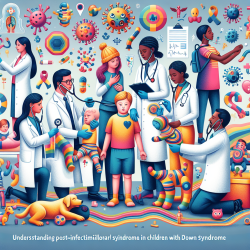Introduction
Grief is a profound and complex experience, particularly when it involves the loss of a child during pregnancy, birth, or shortly thereafter. The research article titled Life after the loss: protocol for a Danish longitudinal follow-up study unfolding life and grief after the death of a child during pregnancy from gestational week 14, during birth or in the first 4 weeks of life provides valuable insights into this sensitive topic. This study, conducted in Denmark, aims to assess the grief process among bereaved parents and offers a comprehensive understanding of the emotional and psychological impacts of such losses.
Key Findings and Implications for Practitioners
The study highlights several critical aspects of grief following perinatal loss:
- Emotional Health: Parents who experience perinatal loss often face intense psychological distress, including feelings of guilt, disenfranchisement, and betrayal by their own bodies. Understanding these emotions is crucial for practitioners who support grieving families.
- Attachment and Continuing Bonds: The study explores how attachment styles influence grief and the concept of continuing bonds with the deceased child. Practitioners can use this information to tailor their support strategies, helping parents maintain a healthy connection with their lost child.
- Gender Differences: The research indicates potential differences in how mothers and fathers process grief. Recognizing these differences can enable practitioners to provide more personalized care to each parent.
- Longitudinal Approach: By collecting data over time, the study offers insights into how grief evolves. Practitioners can use this information to anticipate changes in parents' emotional needs and adjust their support accordingly.
Encouraging Further Research
This study underscores the importance of ongoing research in understanding grief. Practitioners are encouraged to engage with current literature and contribute to research efforts. By doing so, they can enhance their practice and provide evidence-based support to grieving families.
Conclusion
Understanding the nuances of grief following perinatal loss is essential for practitioners working with bereaved families. The Danish longitudinal study offers valuable insights that can inform practice and improve outcomes for grieving parents. By integrating these findings into their work, practitioners can provide compassionate and effective support.
To read the original research paper, please follow this link: Life after the loss: protocol for a Danish longitudinal follow-up study unfolding life and grief after the death of a child during pregnancy from gestational week 14, during birth or in the first 4 weeks of life.










